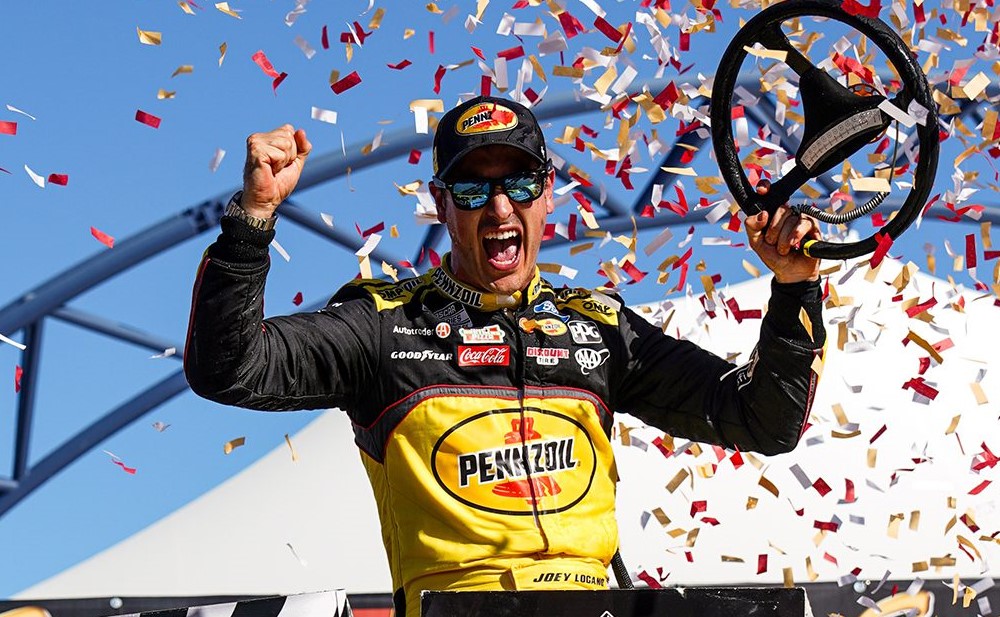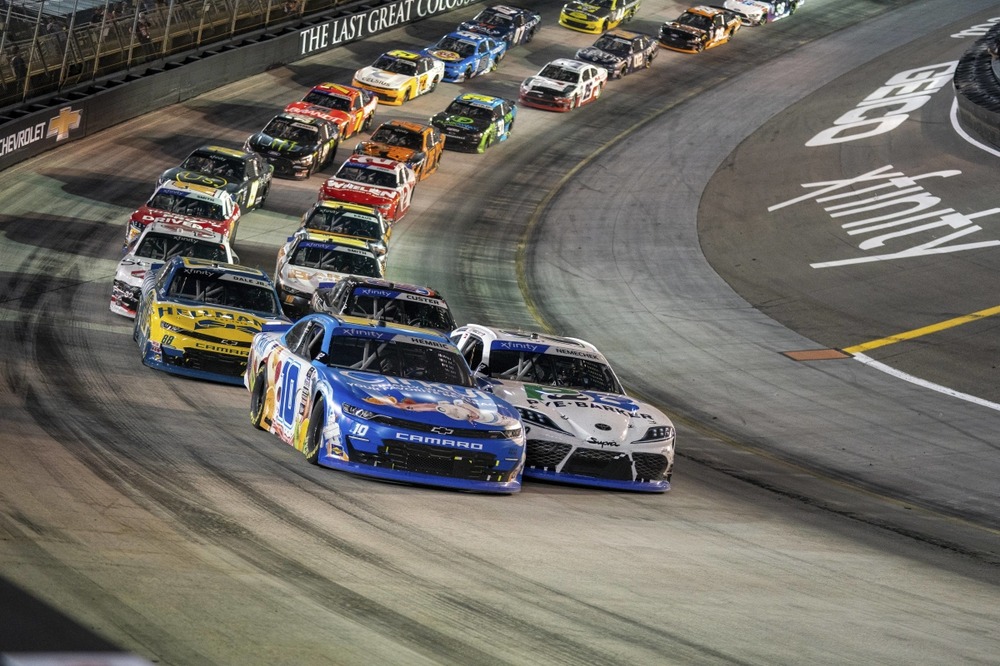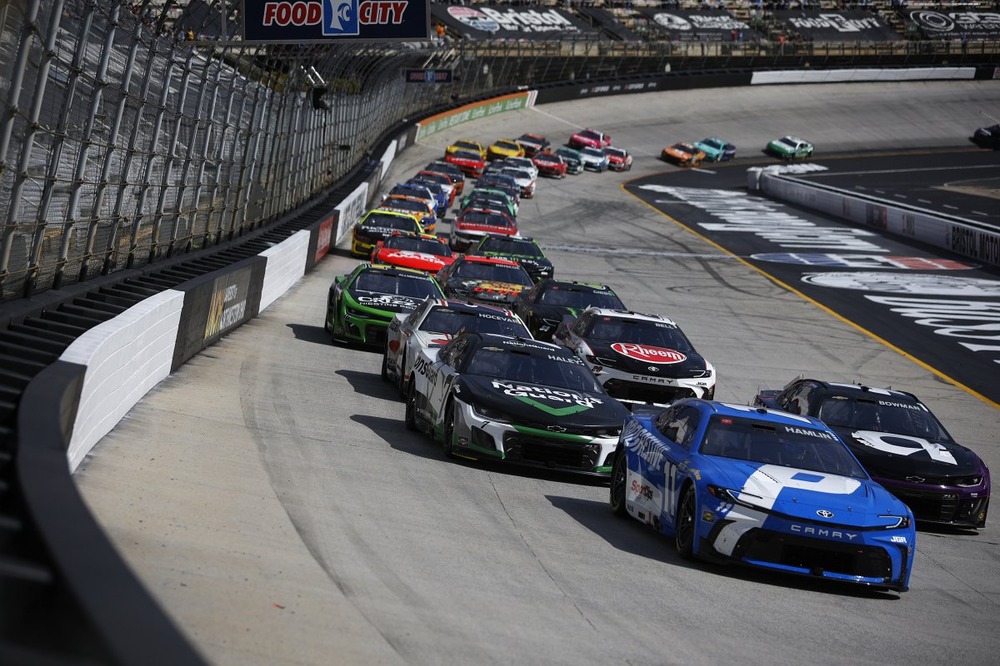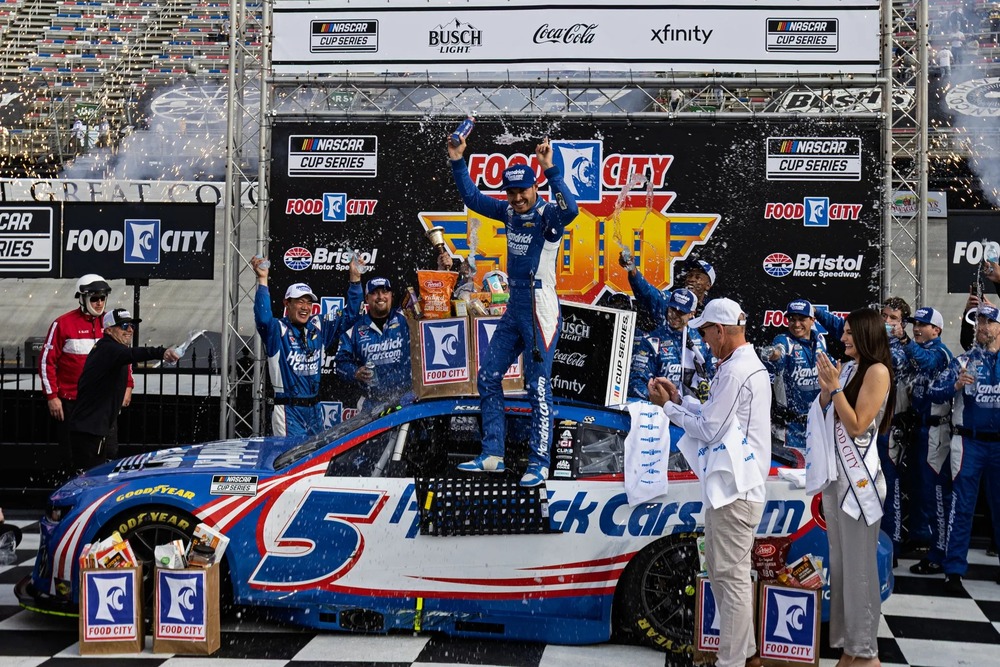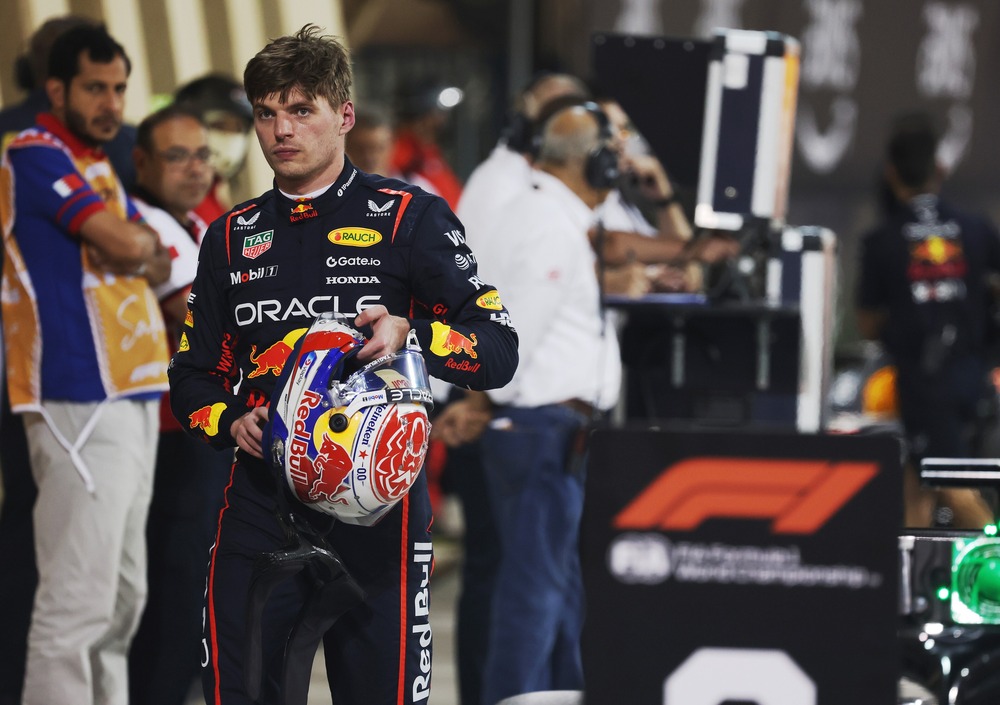Fans are once again at the center of a heated debate over the NASCAR playoff format following Joey Logano’s win at the South Point 400 in Las Vegas which has thrust him into the Championship 4.
This latest twist has reignited long-standing frustrations regarding the playoff system, particularly as Logano’s advancement comes despite his position as the 15th-ranked driver in total points scored this season.
The controversy surrounding this event highlights a critical examination of how the NASCAR playoff format rewards performance throughout the season versus performance in key moments.
Joey Logano’s journey to this pivotal win has been anything but straightforward. He entered the Round of 8 with a precarious standing, having only qualified for the playoffs due to a dramatic victory at Nashville Superspeedway earlier in the season—a race that concluded after five grueling overtimes.
This singular win allowed him to secure a playoff spot, while several other drivers with more consistent performances throughout the year found themselves eliminated. The situation became even more contentious when Alex Bowman, who had initially secured a spot ahead of Logano, faced disqualification due to his car being found underweight.
This disqualification opened the door for Logano, who then seized the opportunity by winning at Las Vegas. However, the implications of his win are profound as critics now argue it undermines the integrity of a season-long competition when a driver can advance to the championship round with such a low point total.
Logano’s win has led many fans to question whether the NASCAR playoff format truly reflects the best drivers over an entire season or merely rewards those who perform well in high-pressure situations.
This sentiment is echoed by numerous fans and analysts who have taken to social media to express their dissatisfaction with a system that seems to favor luck over consistent performance.
Historically, debates about the NASCAR playoff format have been prevalent since its introduction in 2004, and they have intensified since the modern round-by-round elimination format was adopted in 2014.
Proponents of the current system argue that it creates thrilling “game seven” moments that enhance fan engagement and excitement during the playoffs. However, detractors contend that it often leads to outcomes that feel arbitrary and disconnected from overall performance metrics.
Logano’s win to secure a Championship 4 spot has drawn parallels to his previous achievements. He has consistently performed well in even-numbered years, having made it to every Championship 4 since 2018 during those years.
His knack for capitalizing on critical moments has earned him a reputation as a formidable competitor when it matters most. Yet, this year’s circumstances have raised questions about whether his advancement is truly deserved or merely a product of an imperfect system.
The narrative surrounding Logano’s win also emphasizes broader themes within NASCAR regarding team strategy and preparation for the playoffs. Team Penske, Logano’s racing organization, has demonstrated an ability to excel under pressure, suggesting that their approach may be more effective than that of other teams when navigating the complexities of the playoff format.
This raises further questions about whether certain teams have adapted better than others to exploit the nuances of NASCAR’s rules and structure. As fans reflect on Logano’s unexpected rise within this year’s playoffs, many are left pondering potential solutions to enhance fairness and transparency within the playoff format.
Suggestions range from reverting to a traditional points-based system where consistency is rewarded more heavily than singular race victories to implementing additional criteria for playoff qualification that account for overall performance throughout the season.
Despite these discussions, there remains no consensus on how best to reformulate NASCAR playoff format without alienating segments of its fanbase. Any changes would likely provoke criticism from those who believe that winning should always take precedence over points accumulation.
The challenge lies in balancing these competing interests while maintaining the excitement and unpredictability that make NASCAR so captivating.

